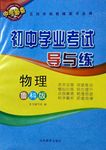题目内容
【题目】All the housewives who went to the new supermarket had one great ambition: to be the lucky customer who did not have to pay for her shopping. For this was what the notice just inside the entrance promised. It said: “Remember, once a week, one of our customers gets free goods. This May Be Your Lucky Day!”
For several weeks Mrs. Edwards hoped, like many of her friends, to be the lucky customer. Unlike her friends, she never gave up hoping. The cupboards in kitchen were full of things which she did not need. Her husband tried to advise her against buying things but failed. She dreamed of the day when the manager of the supermarket would approach her and say: “Madam, this is Your Lucky Day. Everything in your basket is free.”
One Friday morning, after she had finished her shopping and had taken it to her car, she found that she had forgotten to buy any tea. She dashed back to the supermarket, got the tea and went towards the cash-desk. As she did so, she saw the manager of the supermarket approach her. “Madam,” he said, holding out his hand, “I want to congratulate you! You are our lucky customer and everything you have in your basket is free!”
【1】The housewives learnt about the free goods _______.
A. on TV B. at the supermarket
C. from the manager D. from the newspaper
【2】Mrs. Edwards ________.
A. is always very lucky
B. had no friends
C. hoped to get free shopping
D. gets disappointed easily
【3】Mrs Edwards’s husband tried to ________.
A. make her unhappy B. cheer her up
C. buy things with her D. stop her buying things
【4】Mrs. Edwards went back to the supermarket quickly because she had to _______.
A. buy another thing B. talk to the manager
C. pay for her shopping D. find her shopping
【5】Mrs. Edwards must have been ________.
A. pleased B. delighted
C. proud D. disappointed
【答案】
【1】B
【2】C
【3】D
【4】A
【5】D
【解析】
试题分析:文本是一则幽默的小故事。讲的是一个家庭主妇坚持不懈的想要成为一个幸运儿,不顾家人的反对,经常从超市买回一些不需要的东西,只期望有一天买的东西全部免费。虽然希望不大,但有一天“幸运之神”却真的降临了,送给了她一包免费的茶。
【1】细节理解题。从文中第一段” For this was what the notice just inside the entrance promised. It said: ‘Remember, once a week, one of our customers gets free goods. This May Be Your Lucky Day!’” 可知,就在超市的入口可以看到“记住,每周都有一个顾客可以免单,今天可能是你的幸运日!”故选B。
【2】细节理解题。从文中第二段” She dreamed of the day when the manager of the supermarket would approach her and say: ‘Madam, this is Your Lucky Day. Everything in your basket is free.’”可知,她梦想着有一天超市经理会走到她身边对她说,“女士,今天是你的幸运日,你篮子里的所有东西都是免费的。”故选C。
【3】细节理解题。从文中第二段” Her husband tried to advise her against buying things but failed.”可知,她的丈夫试着反对她买东西但是失败了。故选D。
【4】细节理解题。从文中第三段” she found that she had forgotten to buy any tea. She dashed back to the supermarket, got the tea and went towards the cash-desk.”可知,她发现她忘记买茶了,她冲回超市,拿到茶,朝着收银台的方向走去。故选A。
【5】推断分析题。综合全文来看可知,这位家庭主妇所希望的是篮子里装满东西的时候被告知可以免单,而不是篮子里只有一包茶的时候被告知。因此她不会因为这件事而感到高兴,而是会感到失望。故选D。

 初中学业考试导与练系列答案
初中学业考试导与练系列答案